
Disclaimer: this article speaks to my own personal experiences. Please speak to your medical professional for your lifestyle choices and medical needs
Hey y’all! Katy here, Content Creator here at LIY. I am here to chat through what a day in the life of eating looks like for me, as someone with PCOS. If you’re wondering what the heck PCOS is, it stands for Polycystic Ovarian Syndrome, and in basic terms it is a hormonal disorder! If you are one of the lucky ones (joking) that deals with this, there are different types and root causes of PCOS, but 80% of women that have this syndrome struggle with insulin resistance. I have struggled with my cycles since I was a teenager. From hormonal acne, to unexplained weight gain, to irregular cycles and infertility – it has been quite the journey. I wasn’t actually diagnosed until I was 25, but now knowing the issue and having the information has been life changing for me!
Let me start by saying, I am no doctor and I definitely don’t think that I have all of the answers. Everyone’s experiences are different, but I am sharing what I found that works for me and has helped my symptoms through diet and lifestyle! I know how frustrating the symptoms can be, so I hope I can be of some help for you! If you’re looking for more resources on PCOS, I went through this protocol and found it very helpful – it basically taught me the what to do and why behind finding my root cause and figuring out how to fix it! If you aren’t looking for a full protocol, the instructor also has a free podcast with great information.
Before we dive in, here are a few rules I try to live by personally (but let me also say that I definitely break them):
• No Gluten or Dairy (most of the time)
• Cut out refined carbs and sugar as much as possible
• Decaf > Caffeine
• This is a lifelong journey and lifestyle, not a diet
• HIGH protein for breakfast
• Strength Training > Cardio (This is better for the insulin resistance and stress hormone combo)
• Use an 80/20 rule – we are human and deserve to treat ourselves from time to time and not feel guilty about it! So, treat yourself to that milkshake or cookie when you feel like it!
Breakfast
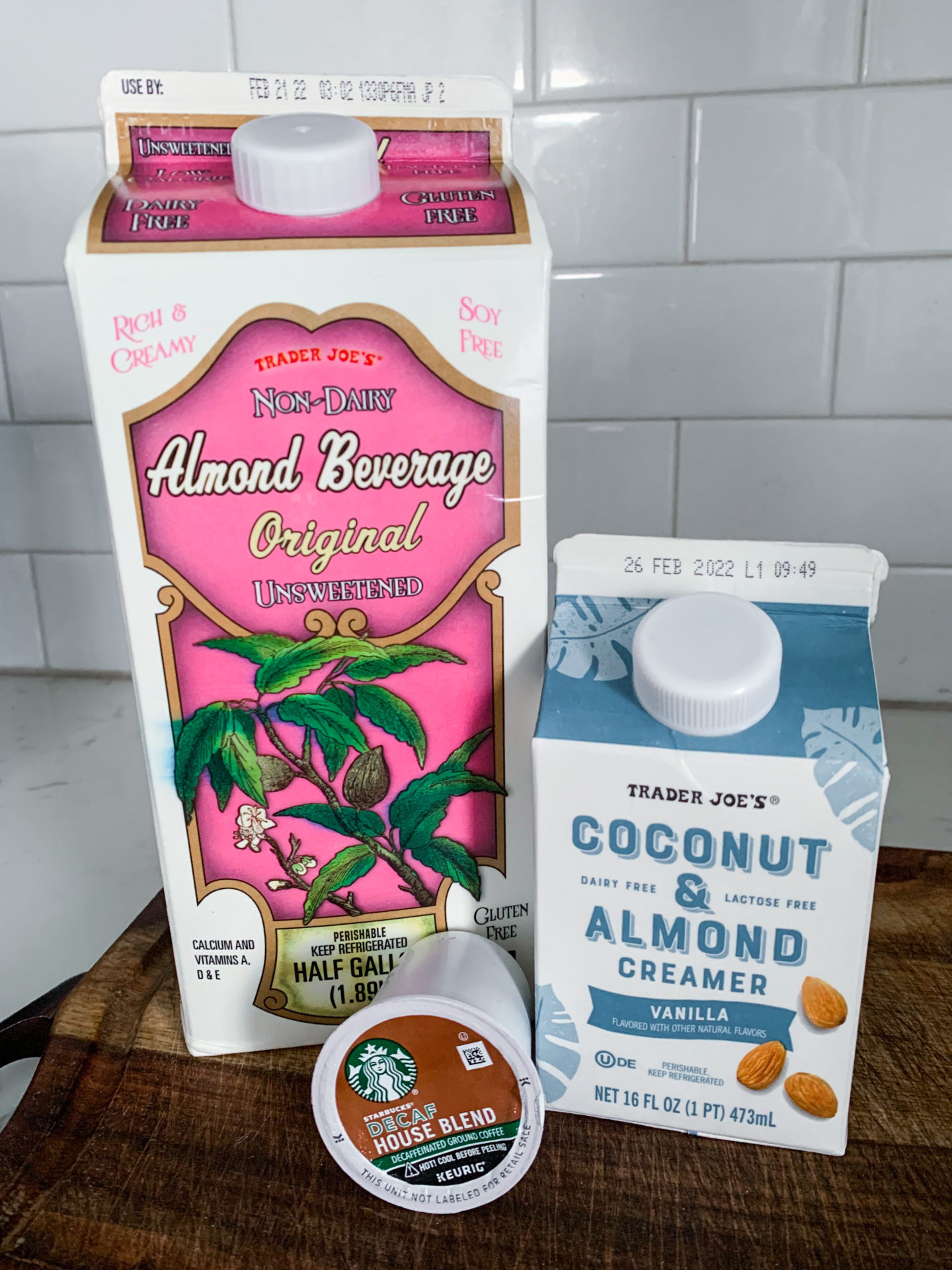
I start my day with a 30 minute walk around the neighborhood with my doggy, Frisco to get the blood pumping and feel the fresh air! This also helps promote insulin sensitivity.
Next, I make myself a homemade (decaf) latte with a mix of almond milk creamer and almond milk. I switched to decaf because a lot of us with PCOS have an adrenal component, and caffeine can disrupt those stress hormones! Honestly, at this point I can’t even tell the difference with decaf and I feel like I am still treating myself!
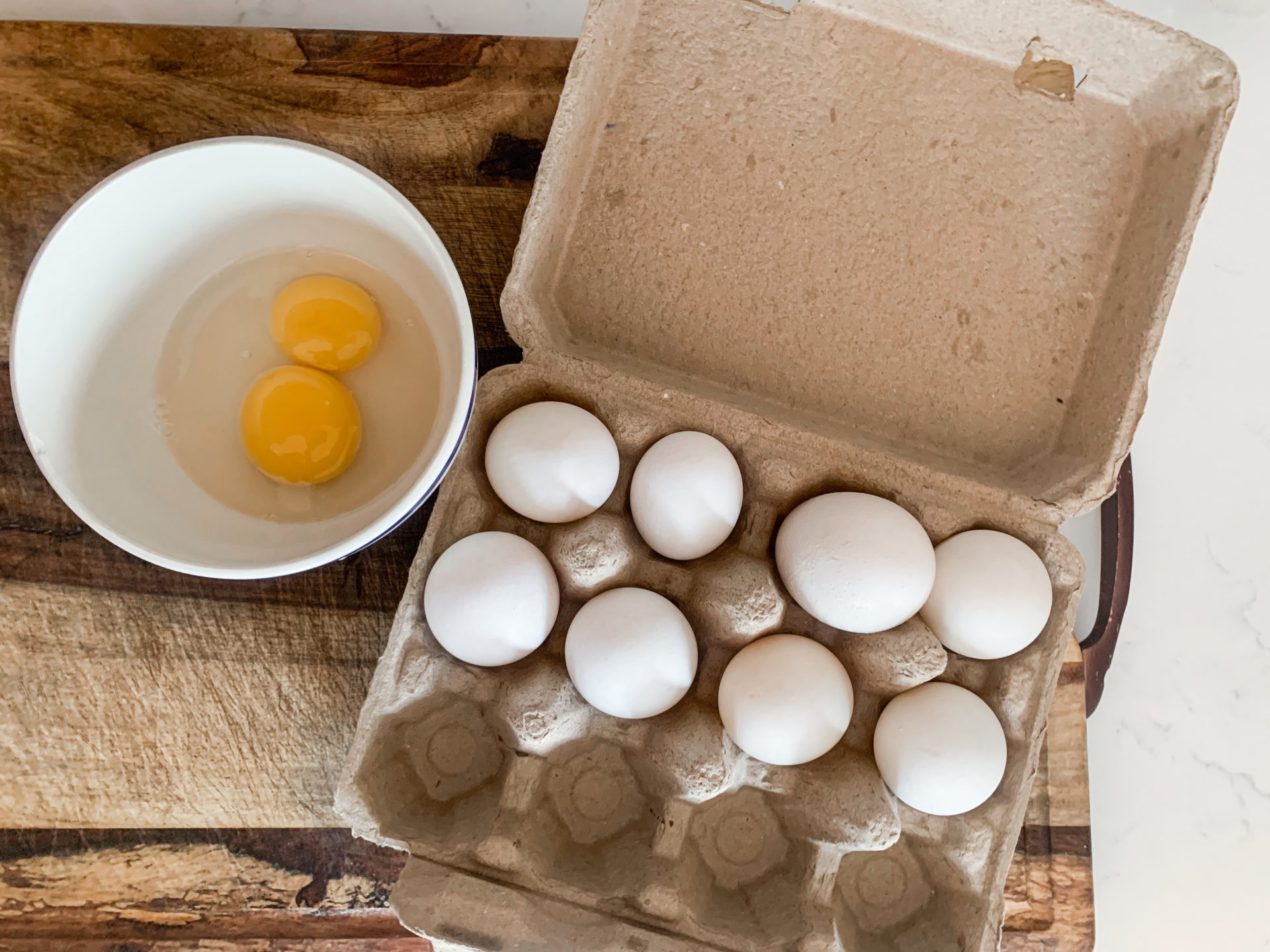
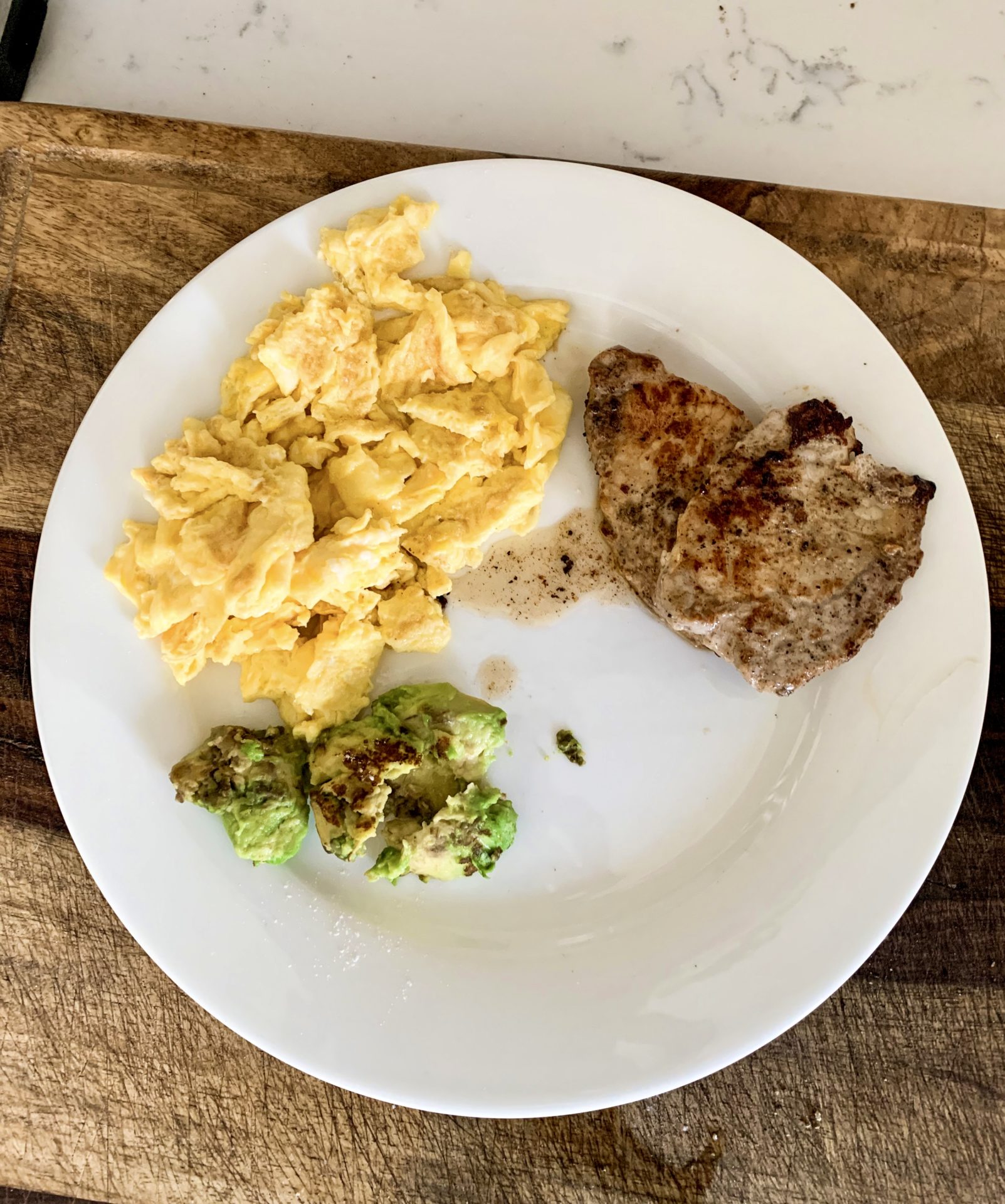
I know intermittent fasting is popular now and while that can be great and work well for some people, I have found that for me about 12 hours of fasting is great and that breakfast is the most important meal of the day. This is a glimpse of what my breakfast looks like (on a good day). I try to do between 30-50g of protein to balance out my insulin and start the day on the right note. Here I have two scrambled eggs, pork tenderloin, and a bit of pan seared avocado. Sometimes I switch it up and do a protein smoothie instead!
Lunch and Dinner
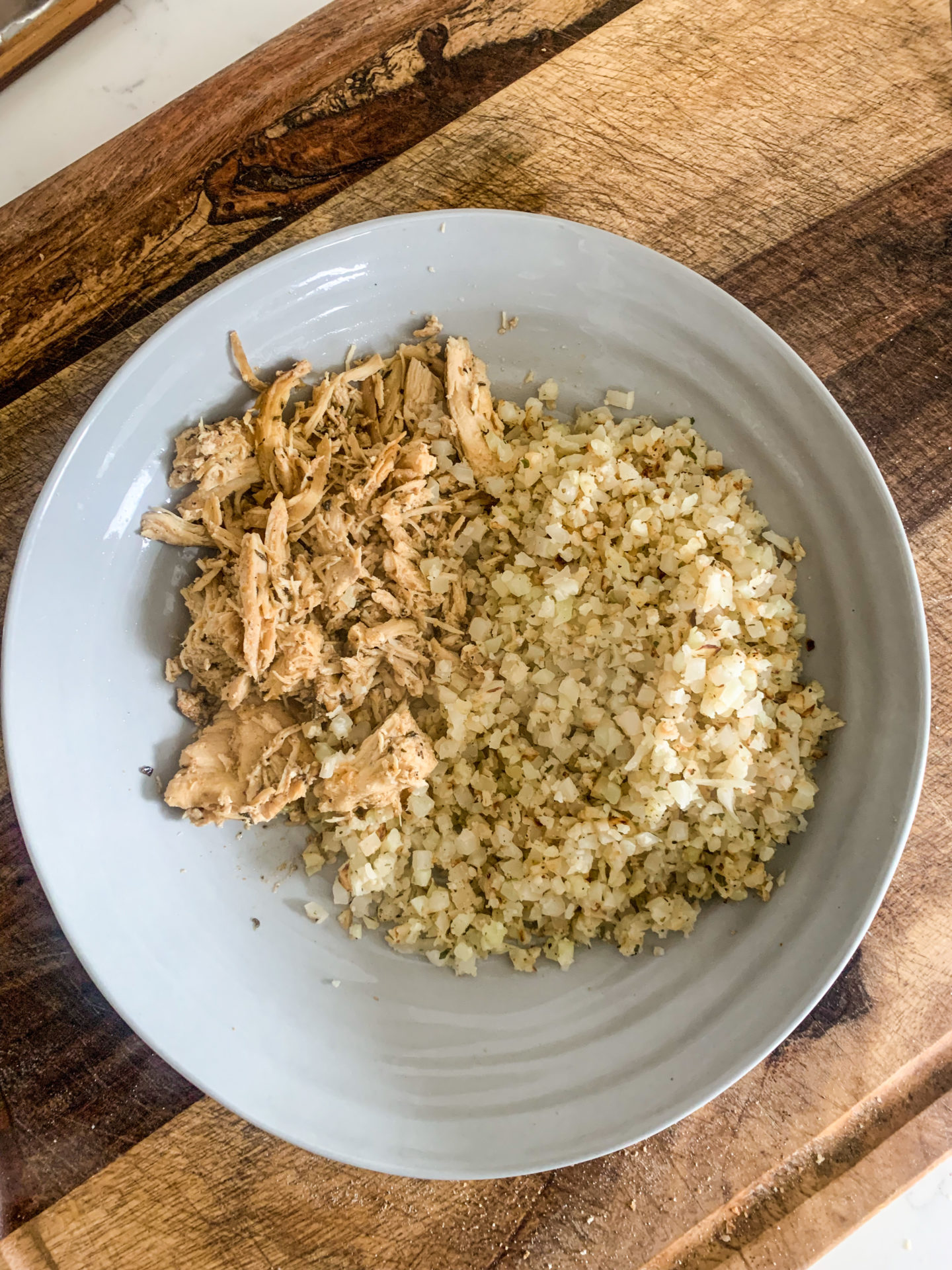
For lunch, I usually keep it simple with some sort of leftovers or whip something up quickly like what is pictured here – Chicken and Cauliflower rice. I am big into Cauliflower rice to feel like I am getting a carb but I am actually getting a good veggie!! See my Homemade Burrito Bowls with Cauliflower rice here.
Dinner is also pretty basic with a meat and veggie. If I am still feeling hungry, I go back for seconds!
Sweet Treats
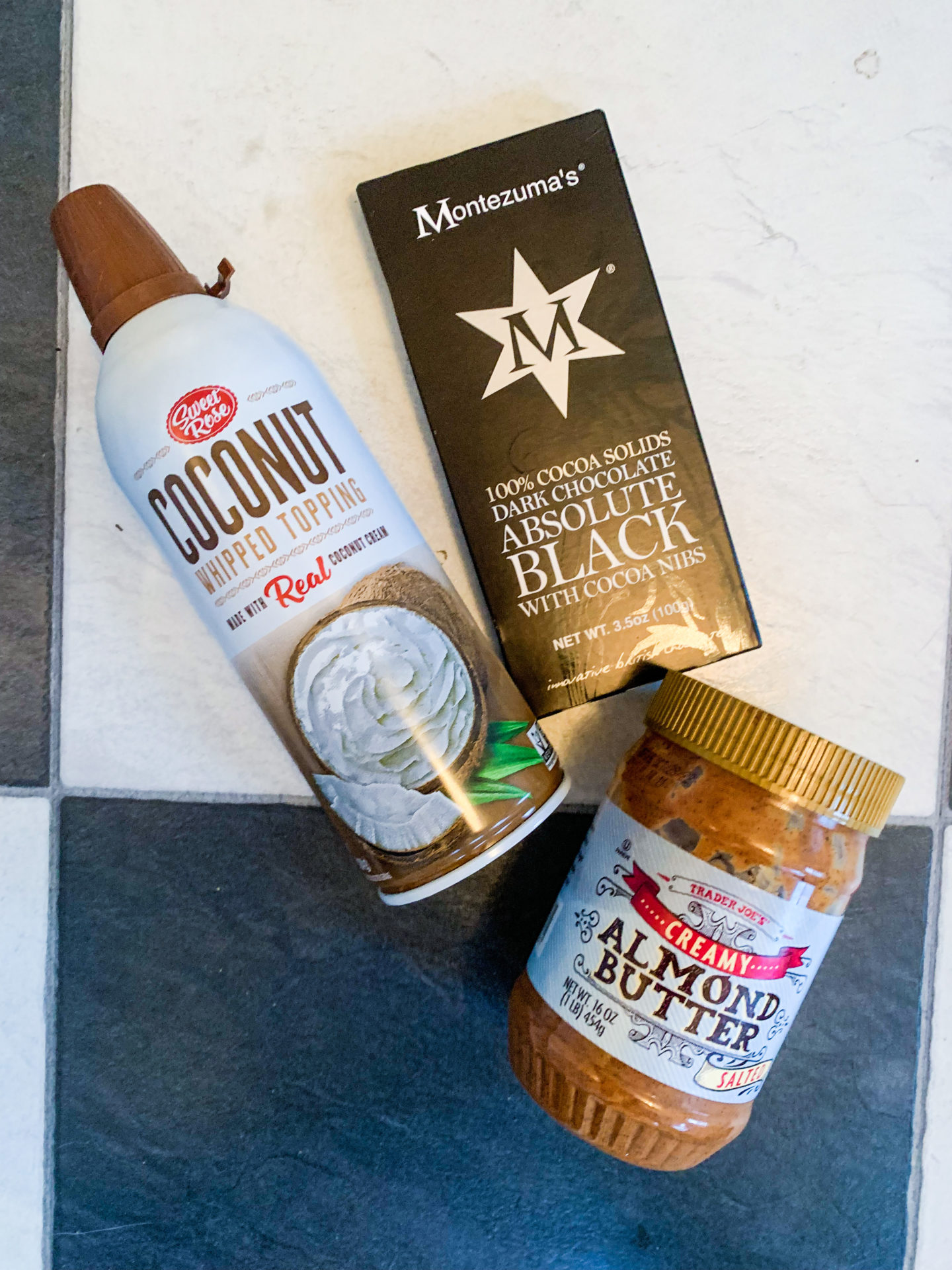
Now, for everyone’s (well at least my) favorite part of the day – dessert! Just because we need to limit our sugar intake doesn’t mean that we can’t enjoy a yummy treat. I do most of my shopping at Trader Joe’s. We did an entire blog post on delicious and healthy foods from Trader Joe’s here. One of my go-to desserts is this 100% chocolate (also available at Trader Joe’s) with some almond or peanut butter and coconut whipped cream!! If you want to mix it up, try this healthy (ish) peanut butter and chocolate “ice cream”.
Vitamins and Supplements
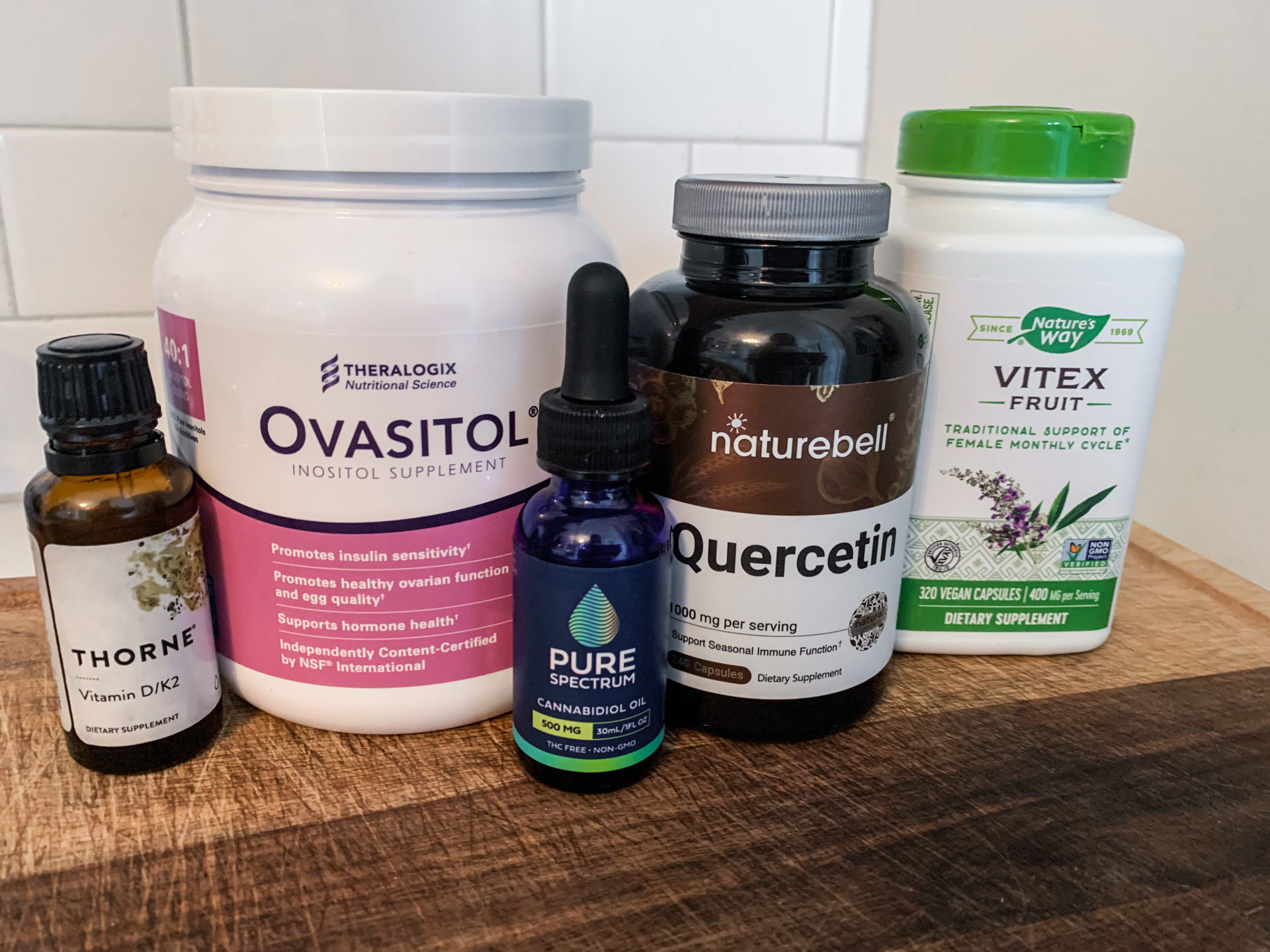
Vitamin D/K2 (getting enough Vitamin D is very important for PCOS) // Ovasitol (promotes insulin sensitivity) // CBD Oil (helps with inflammation) // Quercetin (supports immune system) // Vitex (helps regulate cycles)
Once again, I am no doctor so definitely consult with yours on what supplements you should take, but I wanted to share with you a few that I have been using!
I hope a little day in the life of my personal experiences with PCOS has been helpful and I wish you the best on your journey! WE GOT THIS!


